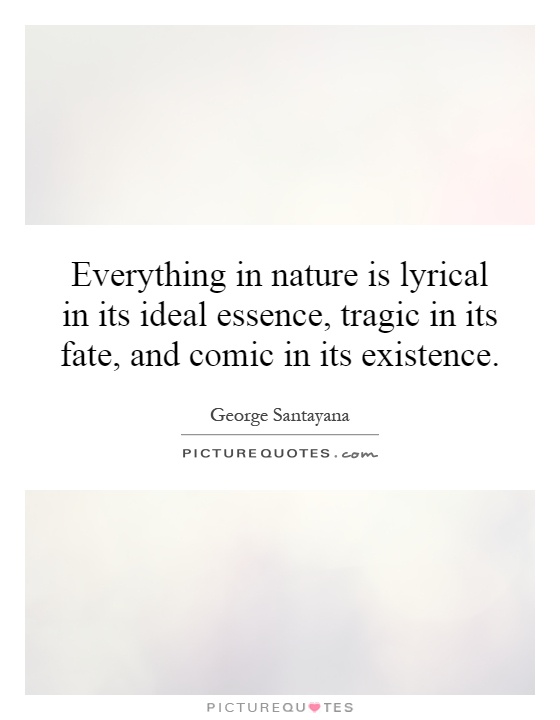Everything in nature is lyrical in its ideal essence, tragic in its fate, and comic in its existence

Everything in nature is lyrical in its ideal essence, tragic in its fate, and comic in its existence
George Santayana, a Spanish-American philosopher, poet, and novelist, was known for his profound insights into the nature of existence and the human experience. One of his most famous quotes, "Everything in nature is lyrical in its ideal essence, tragic in its fate, and comic in its existence," encapsulates his unique perspective on the world and the interconnectedness of all things.Santayana believed that nature, in its purest form, embodies a sense of harmony and beauty that is inherently lyrical. The natural world is filled with wonder and awe-inspiring beauty, from the delicate petals of a flower to the majestic mountains that rise up to touch the sky. In its ideal essence, nature is a source of inspiration and creativity, a reflection of the divine order that governs the universe.
However, Santayana also recognized the tragic aspect of nature, the inevitable cycle of life and death that is inherent in all living things. The beauty of nature is often tinged with a sense of melancholy, as we witness the passing of seasons, the decay of plants and animals, and the impermanence of all things. The tragic fate of nature serves as a reminder of the fragility of life and the inevitability of death, a sobering reality that we must all come to terms with.
Despite the inherent tragedy of existence, Santayana believed that there is also a comic element to life, a sense of absurdity and playfulness that can be found in the most unexpected places. The whimsical antics of animals, the quirky patterns of nature, and the humorous coincidences that occur in everyday life all serve to remind us that there is a lightness and joy to be found in the world. In the face of adversity and suffering, it is often the comic moments that bring us solace and laughter, helping us to find meaning and purpose in the midst of chaos.












 Friendship Quotes
Friendship Quotes Love Quotes
Love Quotes Life Quotes
Life Quotes Funny Quotes
Funny Quotes Motivational Quotes
Motivational Quotes Inspirational Quotes
Inspirational Quotes